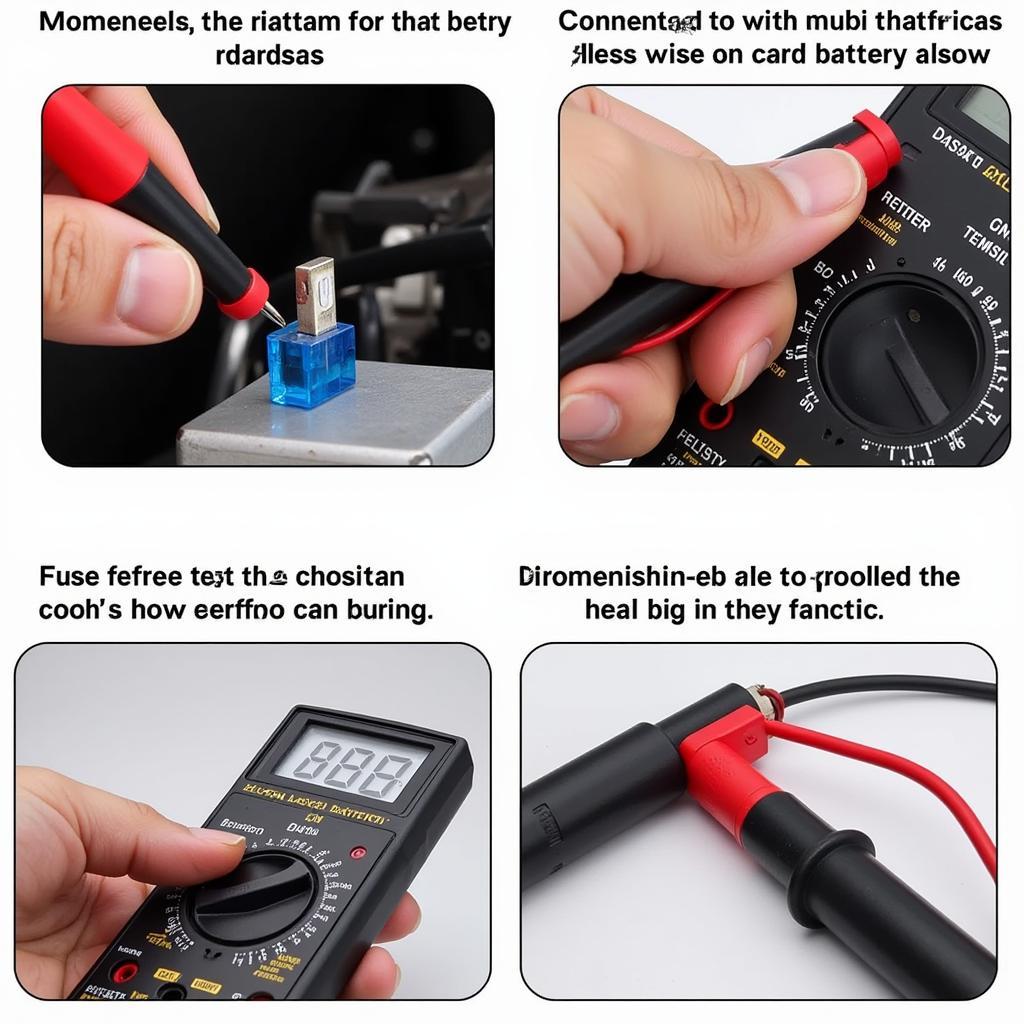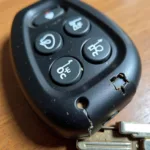Car electrical problems repair can be a frustrating experience, ranging from minor inconveniences to major breakdowns. Understanding the complexities of modern vehicle electrical systems and knowing how to troubleshoot and fix these issues can save you time and money. This guide will delve into common car electrical problems, diagnostic techniques, and repair solutions.
If your car’s electrical system is acting up, check out our resources on car interior electric repairs.
Common Car Electrical Problems
Several electrical issues can plague modern vehicles. These range from simple fixes, like a blown fuse, to more complex problems requiring specialized diagnostic tools and expert knowledge. Here’s a breakdown of some of the most frequent car electrical problems:
- Battery Issues: A dead or weak battery is often the culprit behind starting problems, dimming headlights, and malfunctioning electrical accessories.
- Alternator Problems: A faulty alternator fails to charge the battery properly, leading to similar symptoms as a bad battery and eventually leaving you stranded.
- Starter Motor Malfunction: A clicking sound when you turn the key might indicate a failing starter motor, preventing the engine from cranking.
- Wiring Problems: Damaged, corroded, or loose wiring can disrupt the flow of electricity, causing various electrical malfunctions throughout the vehicle.
- Fuse and Relay Problems: Blown fuses and faulty relays interrupt specific circuits, leading to the failure of related components like lights, wipers, or the radio.
- Sensor Issues: Modern cars rely on numerous sensors for various functions. A malfunctioning sensor can trigger warning lights, affect engine performance, and even disable safety features.
Diagnosing Car Electrical Problems
Diagnosing car electrical problems requires a systematic approach and often the use of specialized tools. Here’s a step-by-step guide:
- Visual Inspection: Start by visually inspecting the battery, wiring, fuses, and relays for any obvious signs of damage, corrosion, or loose connections.
- Battery Test: Use a multimeter to check the battery’s voltage and ensure it’s holding a charge.
- Alternator Test: Test the alternator’s output voltage to verify it’s charging the battery correctly.
- Starter Motor Test: If the starter motor is suspected, test its operation using a multimeter or a dedicated starter motor tester.
- Wiring and Circuit Testing: Use a circuit tester or multimeter to identify any breaks or shorts in the wiring and circuits.
- Diagnostic Scanner: For more complex issues, a diagnostic scanner can retrieve error codes from the vehicle’s computer, pinpointing the source of the problem.
You can find more information on specific electrical repairs in our guide on car interior electric repairs.
 Diagnosing Car Electrical Problems with a Multimeter
Diagnosing Car Electrical Problems with a Multimeter
DIY vs. Professional Car Electrical Repairs
While some simple electrical repairs can be handled by DIY enthusiasts, more complex issues often require the expertise of a qualified mechanic. Factors to consider include your level of experience, the complexity of the problem, and the availability of specialized tools. For instance, you can learn about potential insurance coverage in our guide about car insurance cover repairs for electrical problems.
Preventing Car Electrical Problems
Regular maintenance can prevent many car electrical problems. Here are some preventative measures:
- Regular Battery Checks: Check the battery terminals for corrosion and ensure the battery is securely mounted.
- Inspect Wiring and Connections: Periodically inspect the wiring for damage, wear, and loose connections.
- Keep the Electrical System Clean and Dry: Moisture and dirt can contribute to corrosion and electrical malfunctions.
- Promptly Address Minor Issues: Don’t ignore warning lights or minor electrical glitches, as they can indicate more significant problems down the line.
For location-specific services, see our information on car electrical repairs london.
Conclusion
Car electrical problems repair can be challenging, but understanding the common issues, diagnostic techniques, and preventative measures can help you keep your vehicle’s electrical system in top condition. Whether you tackle minor repairs yourself or seek professional help, proactive maintenance is crucial for preventing costly and inconvenient breakdowns. Remember, regular checks and prompt attention to any electrical issues can save you time, money, and frustration in the long run. If you are looking for detailed diagrams and repair procedures, consider checking out our car electrical system repair pdf. You might also find information about Al Manahel Electrical & Car A/C Repairing helpful.
FAQ
- What are the most common signs of car electrical problems? Dimming headlights, slow starting, malfunctioning electrical accessories, and warning lights.
- How can I test my car battery? Use a multimeter to check the battery’s voltage.
- What should I do if my car won’t start? Check the battery, starter motor, and alternator.
- How can I prevent car electrical problems? Regular maintenance, including battery checks, wiring inspections, and keeping the electrical system clean and dry.
- When should I seek professional help for car electrical problems? For complex issues, or if you lack the experience or tools to diagnose and repair the problem yourself.
- What is the role of a car’s alternator? To recharge the battery and power the electrical system while the engine is running.
- What are fuses and relays, and how do they work? Fuses and relays protect the electrical system from overloads and damage.
Need support? Contact us via WhatsApp: +1(641)206-8880 or Email: [email protected]. Our customer service team is available 24/7.


